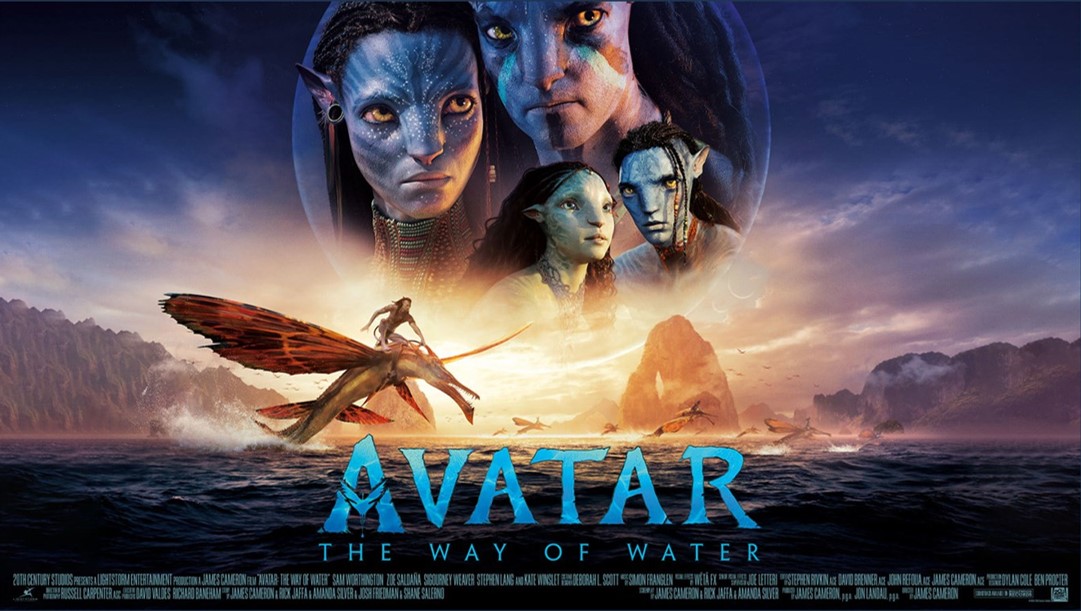
by Noah & Nadia Hartwig
Earlier this year, when we were home on break, Nadia’s grandpa took some of her siblings and us to see the movie “Avatar: The Way of Water.” Having recently watched the first movie, we were excited and invested in the characters, especially the love story between Jake Sully and Neytiri. Expecting an average Disney movie complete with a liberal agenda, we were pleasantly surprised by the numerous life-affirming messages present throughout the story. While the movie was in no way a Christian film and there were a couple of major underlying theological problems, the portrayal of family, race, and gender led to themes that supported a positive view of creation and the value of life.
Throughout the plot, family is praised as being an important ideal to strive towards. And the portrayal of family values is not only accurate, but also life-affirming: Families are to love unconditionally. Parents should cherish their children, and children should respect their parents. These truths are exemplified through Jake and Neytiri’s positive relationship with their children. Even the evil Colonel and his long-lost son, Spider, understand the unique bond that families have.
Christians know that this reality is a gift from God and families are a blessing. The relationship between the members of a family is outlined in God’s Word and mirror the repentance and forgiveness found in the Gospel story on a day to day basis. This sacrificial love is seen in the movie as well: Brothers take the blame for each other, the children respect their parents, Neytiri follows Jake’s decision to leave her homeland even though it breaks her heart, and Jake repeatedly sacrifices himself for the safety and protection of his family. Forgiveness abounds. Within this structure, the lives of all involved are affirmed, provided for, and loved, just as God created the family to be.
The issue of race is another topic addressed inadvertently in the film. We know that God created all people equally in His image, and that we are all equally His children no matter our race. Similarly, Avatars, Na’vi, and humans are all portrayed as important, complete beings worthy of equal treatment. The colonel’s horrific treatment of the Na’vi is condemned as well as the conditions that separate Spider and the other Sully children. When their family reaches Awa’atlu, the Metkayina children first make fun of the new-comers because their skin and features are different, but they quickly realize that outside appearance is not what matters. Their new friends were given unique talents, gifts, and inherent worth by their creator. This is shown clearly when Lo’ak befriends the lonely Payakan, and Kitty saves the day through her special connection with Eywa.
One of the core themes that the plot rests upon is the value of life. Na’vi, Metkayina, other native clans, humans, and the unborn are all valued. Spider is the primary voice for many of these peoples; he recognizes and fights against abuse of the coastal clans during his father’s search for Jake Sully. While most of these races are expected to be portrayed as having value, it stuck out to me that the lives of unborn babies and young children were also valued and cherished. For example, Ronal, the Metkayani chief’s wife, is pregnant, freely speaking of her unborn baby as another child. Additionally, she grieves for her spirit sister’s lost child when she finds out the human-like tulkun was killed while expecting. Frequently, the Sully children are also seen helping their youngest sister, Tuktirey, and generally showing a level of respect and love for those who are less able than themselves.
Avatar: The Way of Water certainly brings to the forefront a variety of life issues and approaches them in a life-affirming way, but it is not perfect. The acceptance of genetically modifying humans is a dangerous belief as our bodies are created specially by God as well as our minds and should not be valued any less. Also, Eywa is a false goddess worshiped in the film as their creator rather than the one true God, our Lord and Savior, Jesus Christ. Despite these shortcomings, many truths about creation and the value of life are still evident, especially through their portrayal of family making this surprisingly positive movie.
